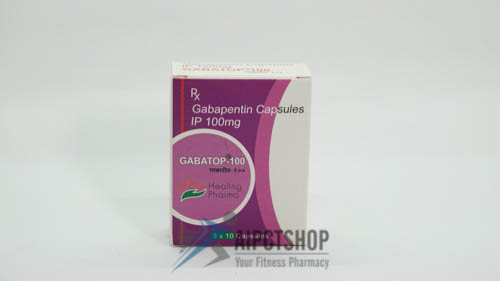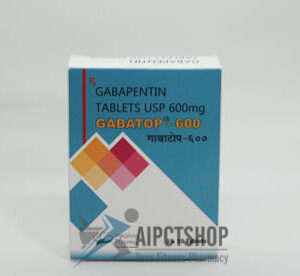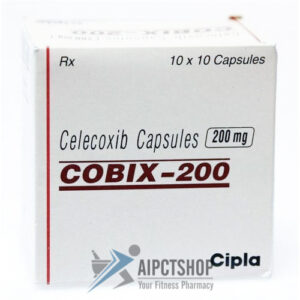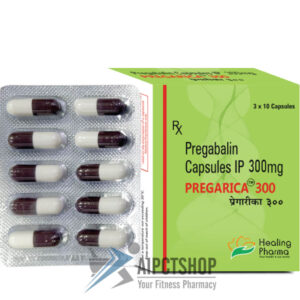GABAPENTIN
Uses
Gabapentin is used in the treatment of neuropathic pain and epilepsy
How it works
Gabapentin decreases pain and seizures by modulating calcium channel activity of the nerve cells.
Common side effects
Sleepiness, Dizziness, Uncoordinated body movement, Fatigue
Expert advice FOR Gabatop 600
- Food decreases the amount of alpha lipoic acid in the body; hence it should be taken on empty stomach about 1 hour before or 2 hours after consuming food.
- Do not take alpha lipoic acid supplements on your own and as a sole treatment for diabetes, complications of diabetes and other conditions in which benefit may be claimed, as these diseases require proper medical treatment.
Frequently asked questions FOR Gabatop 600
Gabapentin
Q.
Is gabapentin used as a muscle relaxant or, blood thinner?
No. Gabapentin is a prescription medication and has no role in muscle relaxation or, blood thinning
Q.
Is gabapentin an opiate, benzo or NSAID?
Gabapentin is an analog of GABA (gamma- amino butyric acid), that is effective against fits and pain due to nerve damage or nerve irritation. It is not an opiate or benzodiazepine or NSAID
Q.
Is gabapentin (dose 600 mg) a narcotic?
No. Gabapentin at any dose is not a narcotic agent. Follow the advice of your doctor regarding the best dose suited for your condition
Storage/Stability
Capsules and tablets: Store at 25?C (77?F); excursions permitted to 15?C to 30?C (59?F to 86?F). Use scored 600 or 800 mg tablets that are broken in half within 28 days of breaking the tablet.
Oral solution: Store refrigerated at 2?C to 8?C (36?F to 46?F).
Adverse Reactions
>10%:
Central nervous system: Dizziness (immediate release, adolescents and adults: 17% to 28%; extended release, adults: 11%; immediate release, children: 3%), drowsiness (immediate release, adolescents and adults: 19% to 21%; immediate release, children: 8%; extended release, adults: 5%), ataxia (immediate release, adolescents and adults: 1% to 13%), fatigue (immediate release, adolescents and adults: 11%; immediate release, children: 3%)
Infection: Viral infection (immediate release, children: 11%)
1% to 10%:
Cardiovascular: Peripheral edema (adolescents and adults: 2% to 8%), hypertension (extended release, adults: >1%), increased blood pressure (extended release, adults: >1%), vasodilation (immediate release, adolescents and adults: 1%)
Central nervous system: Hostility (immediate release: 5% to 8%), emotional lability (immediate release: 4% to 6%), abnormality in thinking (immediate release: 2% to 3%), abnormal gait (immediate release, adults: 2%), amnesia (immediate release, adolescents and adults: 2%), depression (immediate release, adolescents and adults: 2%), status epilepticus (immediate release, adolescents and adults: 2%), confusion (extended release, adults: >1%), memory impairment (extended release, adults: >1%), lethargy (extended release, adults: 1%), pain (extended release, adults: 1%), vertigo (extended release, adults: 1%)
Dermatologic: Skin rash (extended release, adults: >1%), excoriation (immediate release, adolescents and adults: 1%)
Endocrine & metabolic: Weight gain (2% to 3%), hyperglycemia (immediate release, adults: 1%)
Gastrointestinal: Nausea (immediate release: ?8%; extended release, adults: >1%), vomiting (immediate release: ?8%), diarrhea (immediate release, adults: 6%), xerostomia (adolescents and adults: ?5%;), constipation (adolescents and adults: 1% to 4%), dental disease (immediate release, adolescents and adults: 2%), dyspepsia (adolescents and adults: 1% to 2%), viral gastroenteritis (extended release, adults: >1%)
Genitourinary: Impotence (immediate release, adolescents and adults: 2%), urinary tract infection (extended release, adults: 2%)
Hypersensitivity: Seasonal allergy (extended release, adults: >1%)
Infection: Infection (immediate release, adults: 5%), herpes zoster infection (extended release, adults: >1%)
Neuromuscular & skeletal: Tremor (immediate release, adolescents and adults: 7%), asthenia (immediate release, adults: 6%), hyperkinetic muscle activity (immediate release: 3% to 5%), back pain (adolescents and adults: 2%), dysarthria (immediate release, adolescents and adults: 2%), limb pain (extended release, adults: 2%), joint swelling (extended release, adults: >1%)
Ophthalmic: Nystagmus disorder (immediate release, adolescents and adults: 8%), diplopia (immediate release, adolescents and adults: 1% to 6%), amblyopia (immediate release: 3% to 4%), conjunctivitis (immediate release, adults: 1%)
Otic: Otitis media (immediate release, adults: 1%)
Respiratory: Bronchitis (immediate release, children: 3%), nasopharyngitis (extended release, adults: 3%), respiratory tract infection (immediate release, children: 3%), pharyngitis (immediate release, adolescents and adults: 1% to 3%), cough (immediate release, adolescents and adults: 2%), dry throat (immediate release, adolescents and adults: ?2%), pneumonia (extended release, adults: >1%), upper respiratory tract infection (extended release, adults: >1%)
Miscellaneous: Fever (immediate release, children: 10%; extended release, adults: >1%), accidental injury (immediate release, adults: 3%)
<1%, postmarketing, and/or case reports: Agitation, altered serum glucose, anaphylaxis, angioedema, anorgasmia, breast hypertrophy, change in libido, DRESS syndrome, ejaculatory disorder, erythema multiforme, hyponatremia, increased creatine phosphokinase in blood specimen, increased liver enzymes, jaundice, movement disorder, respiratory depression (FDA Safety Alert, Dec 19, 2019), rhabdomyolysis, Stevens-Johnson syndrome, suicidal ideation, suicidal tendencies









Reviews
There are no reviews yet